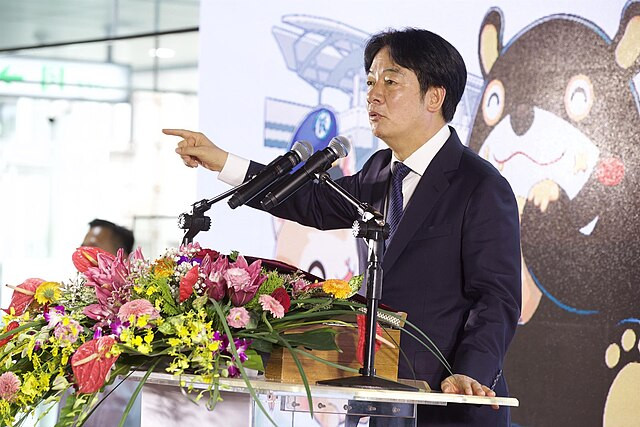In a defiant National Day address, Taiwan's President Lai Ching-te vowed to resist any attempts by China to annex the self-governing island, reaffirming his country's determination to uphold its sovereignty. Speaking to a large crowd in Taipei, Lai emphasized Taiwan's progress and its resolve to stand firm against Beijing's pressure, a stance that has already provoked a sharp reaction from China.
"The People's Republic of China has no right to represent Taiwan," Lai declared, as he underscored his commitment to "resist annexation or encroachment upon our sovereignty." The speech comes at a time of heightened geopolitical tensions, with China consistently pressing its claims over Taiwan and signaling its readiness to use force if necessary.
China's response was swift and severe. Mao Ning, a spokesperson for the Chinese Foreign Ministry, accused Lai of attempting to "sever historical connections" between the two sides and condemned what she described as his "sinister intentions to escalate tensions in the Taiwan Strait." Beijing has long viewed Taiwan as a breakaway province and has vowed to bring it under its control, by force if necessary.
The latest remarks from President Lai are likely to further strain relations with Beijing. Since his inauguration earlier this year, Lai has adopted a firmer stance on Taiwan's sovereignty compared to his predecessor, Tsai Ing-wen, while still promoting the maintenance of the status quo. Lai has repeatedly stated that Taiwan is already an independent nation, which has never been ruled by the People's Republic of China since its founding in 1949.
Lai's speech also touched on the complex dynamics with China, as he pledged to preserve peace and stability across the Taiwan Strait. "The Republic of China and the People's Republic of China are not subordinates to each other," he asserted, emphasizing that democracy and freedom were thriving in Taiwan. However, his comments drew criticism from Chinese officials, who argued that his rhetoric was intended to stir up nationalist sentiments and political support within Taiwan.
Political analysts note that Lai's remarks, while provocative, were more measured than some of his previous speeches. Lev Nachman, a political scientist at National Taiwan University, observed that Lai's tone in the address was relatively restrained, likely aimed at minimizing the immediate backlash from Beijing. "The speech was much softer and less snarky than his recent speeches," Nachman told the BBC, adding that despite the milder language, Beijing is unlikely to dial down its pressure on Taiwan.
In response to Lai's comments, China is expected to ramp up military exercises near Taiwan, a tactic it has employed in the past to intimidate the island's population. Chinese leader Xi Jinping has already instructed his military to be prepared for a potential invasion of Taiwan by 2027, although experts believe this timeline does not necessarily indicate an imminent conflict.
Despite these tensions, Lai emphasized in his address that he seeks to maintain peaceful relations with China where possible. He expressed willingness to cooperate on issues such as climate change, regional security, and health, but remained firm that any dialogue with Beijing must not compromise Taiwan's sovereignty.
Lai's tough stance on Taiwan's sovereignty has earned him support domestically, where many citizens share his views on resisting Chinese aggression. A recent poll from a Taiwan-based think tank indicated that while most Taiwanese believe the threat from China is real, about 61% do not anticipate an attack within the next five years. Nevertheless, the specter of Chinese military exercises and constant airspace intrusions has kept the issue of national security at the forefront of public discourse.






